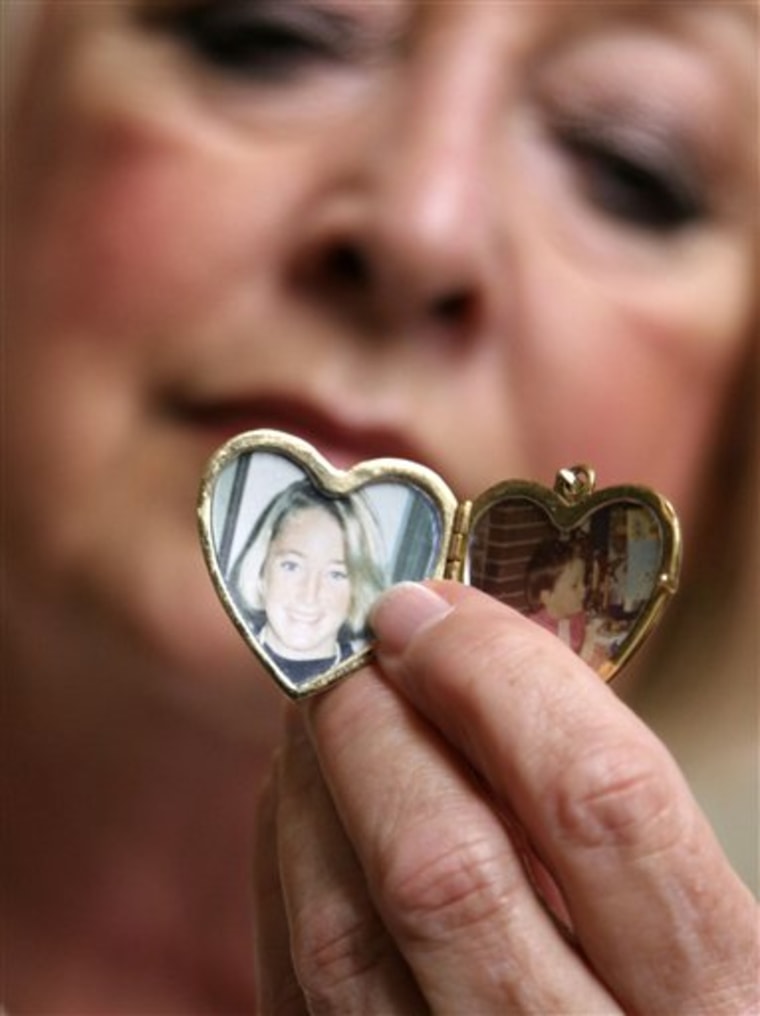South Africa is honoring her for helping it overcome the legacy of apartheid, but Linda Biehl says she has simply done what any parent would after the death of a child: tried to find meaning in loss.
Amy Biehl was stabbed and stoned to death in the waning days of apartheid in a township near Cape Town, where she was studying how women were contributing to change in South Africa. Her black assailants claimed the attack on the 26-year-old American, who was white, was part of the war on white rule.
"People don't want a death to be in vain or senseless," Linda Biehl told The Associated Press Monday — her 65th birthday and the eve of a ceremony at which President Thabo Mbeki is to grant her one of his nation's highest honors.
Biehl and her husband, Peter, who died in 2002, forgave the four men convicted in their daughter's 1993 slaying, and embraced the truth and reconciliation process on which South Africa embarked after white rule ended in 1994.
Amy Biehl's attackers were granted amnesty after confessing before the Truth and Reconciliation Commission headed by former Cape Town Anglican Archbishop Desmond Tutu. Two of them now work for a charity the Biehls founded that has provided training in arts, sports and other areas to young South Africans.
Seeking 'the humanity in all of us'
"If it weren't for the institutionalized process that we went through, we would not be connected in a personal reconciliation," said Biehl, who divides her time between Newport Beach, Calif., and Cape Town. "I'm just interested in finding the humanity in all of us, which I thought was the essence" of the Truth and Reconciliation Commission.
Biehl said she sees her daughter's attackers as victims, too caught up in the struggle against apartheid to value life or consider personal responsibility. And now they and many like them are unequipped to prosper in post-apartheid South Africa.
"They had the skills to make the bombs, to strategize in guerrilla warfare," Biehl said, noting many slipped into crime after apartheid ended. She hopes working with her foundation will mean a better future for at least some of the generation that embraced the call for liberation before education.
"These are committed people ... they should also be part of the change," she said.
Composed under a sweep of blonde hair, Linda Biehl looks like an art gallery owner or manager of an upscale clothing store — both jobs she once held. In the years since her daughter's death, she has devoted most of her time to the Amy Biehl Foundation, and to speaking about forgiveness to audiences ranging from high school students in urban America to forums bringing together Palestinians and Israelis.
In announcing she was being awarded the Order of the Companion of O.R. Tambo, the president's office cited Linda Biehl's "outstanding spirit of forgiveness in the wake of the murder of her daughter and contributing to the promotion of non-racism in post-apartheid South Africa."
The award, named for the late African National Congress hero Oliver Tambo, has previously been granted to former U.N. Secretary-General Kofi Annan and, posthumously, to India's independence leader Mohandas Gandhi. Musician and civil rights activist Harry Belafonte was a fellow honoree this year.
Hate mail as well as embraces
Many people don't understand her decision to transform grief into commitment to racial reconciliation, Biehl said. Even in South Africa, some are baffled or suspicious, she said, adding with a rueful laugh that she has the hate mail to prove it. But she also has been embraced.
Last June, officials at a Johannesburg high school asked her to speak at anniversary celebrations for the school, where crime and violence had touched many students and their families. Biehl said she found herself facing a mostly white audience. Afterward, a woman told her of her brother's murder during a robbery, and how she was now working for gun control.
South Africans are "trying to understand the forgiveness and reconciliation process," Biehl said. "If an example can be helpful to people, if a story can be helpful to people, I'm happy to share my story."
If South Africans have been inspired by her, Biehl said she has learned much and been comforted in return. Her work in the Cape Town township where her daughter died has meant learning first hand how AIDS and crime is devastating the lives of impoverished black South Africans.
"I don't go to that many funerals in America. Here, I could go to one every Saturday," she said. "Just listening to people and how they accept things has just been very therapeutic for me."
In South Africa, "you help each other, and there is a gathering of support."
She compares herself to parents galvanized to campaign against drinking after the death of a child at the hands of a drunk driver, or who raise funds to find a cure for cancer after losing a child to disease.
"People who lost their children, they want to do something about it," she said. "I don't think my story is that much different than that, really."
